|
0 Comments
Visit our interactive Take Back The Night activity here!
To celebrate International Women's Day we asked people how they like to honor the womxn in their life. Here are their responses! Happy #SexualAssaultAwarenessMonth everyone! Here is a list of on and off campus resources for survivors this month! Save this photo and share it and keep it saved in your camera roll in case of an emergency.
An unprecedented 37 million jobs are currently vulnerable to layoffs as a result of COVID. As a result, many individuals are making the move to online sex work on websites like OnlyFans and ManyVids. We have put together a guide to safety in online sex work including helpful tips from some online adult entertainers themselves.
Consent is still necessary in digital mediums and you must have the full consent and cooperation of the other person in any online sexual exchange. If the other person does not want to participate for whatever reason and you try to guilt or blackmail them into submission, it is considered to be coercion or possibly sex trafficking. 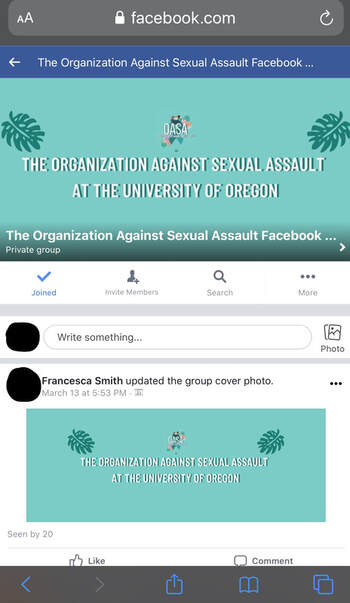 This is a safe place for those who want to be further involved with Organization Against Sexual Assault (OASA). We are providing a space for people to connect and eventually create their own meet-up activities through this page. This is an organization to build a strong community of allies for survivors. If you are looking to be more involved with OASA, this page will provide you the opportunity to learn about what we are doing on campus and how you can be apart of our mission. We are an open group. Please feel free to join and look over the expectations and guidelines for our members. 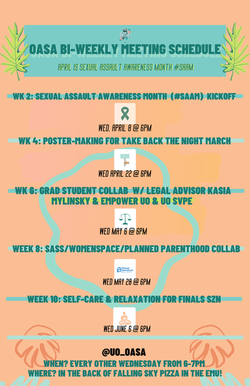 This is our schedule for our bi-weekly meetings for next term. We are following in accordance with the safety regulations to the University of Oregon. We know this is a trying time for the University of Oregon students and people all over the world, so we are still offering our support and analyzing how we can work around the regulations during this time to support students any way we can. Week 2: SAAM Kickoff (TBD) Week 4: Poster making for Take Back the Night Week 6: Collaboration with grad students discussing Title IX Policy, how students can be affected by sexual harassment and violence in field research Week 8: Womenspace presentation Week 10: Self-care and relaxation for finals If you have any questions or concerns at this time please contact our social media, or email us directly at [email protected]. |
Archives
April 2020
Categories |

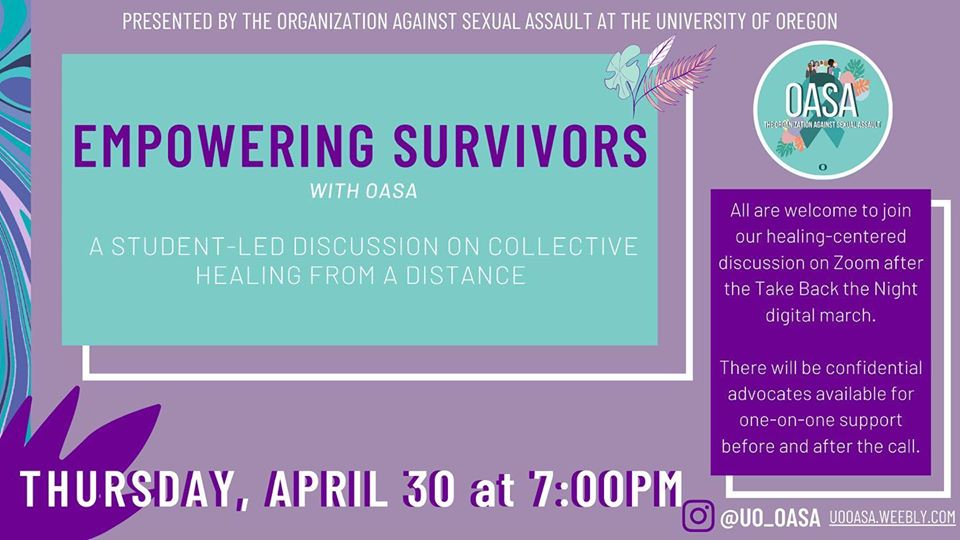
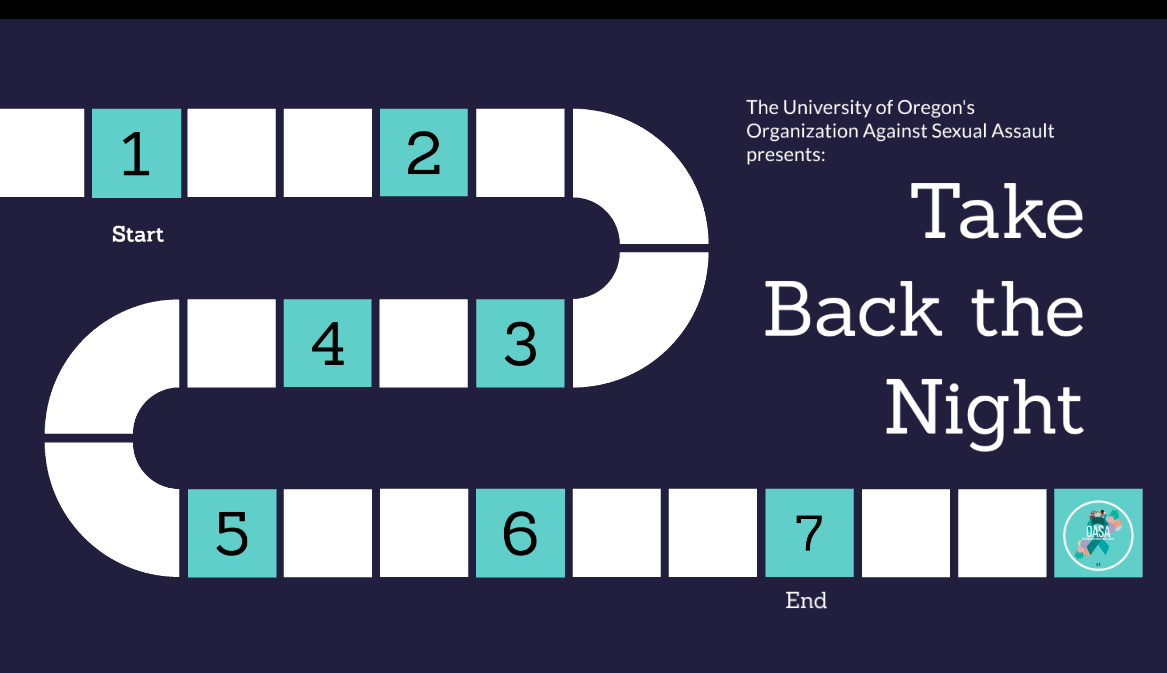
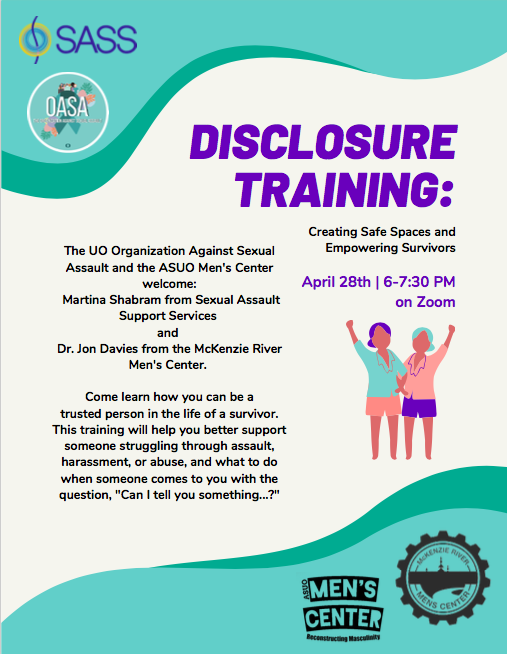
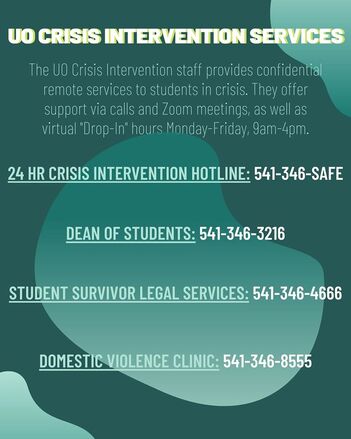
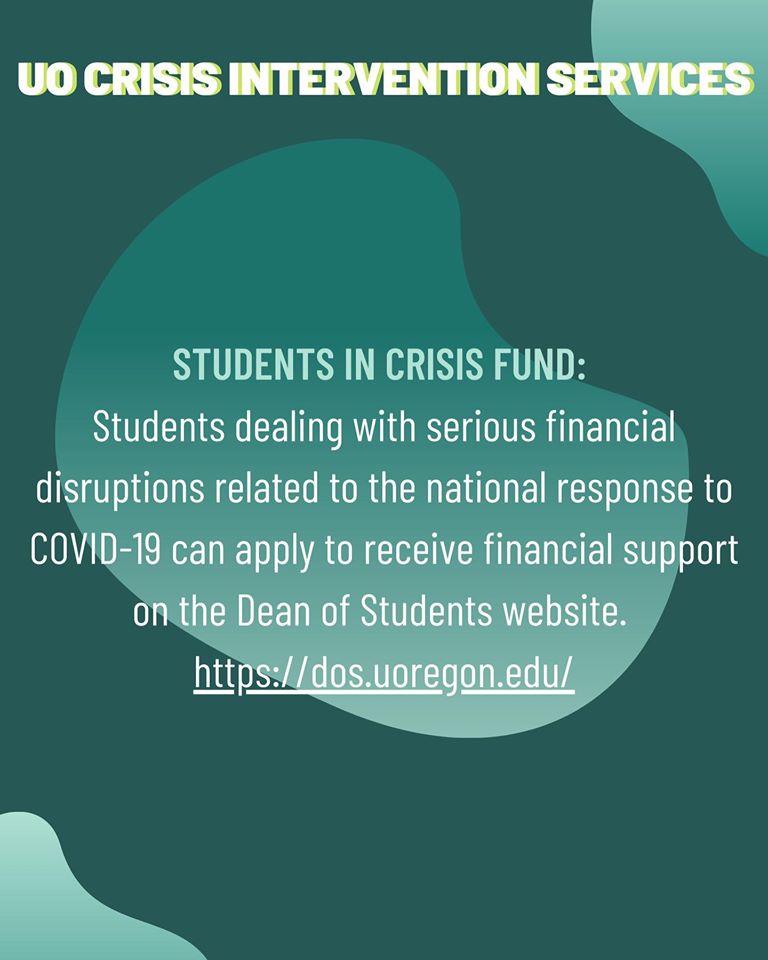
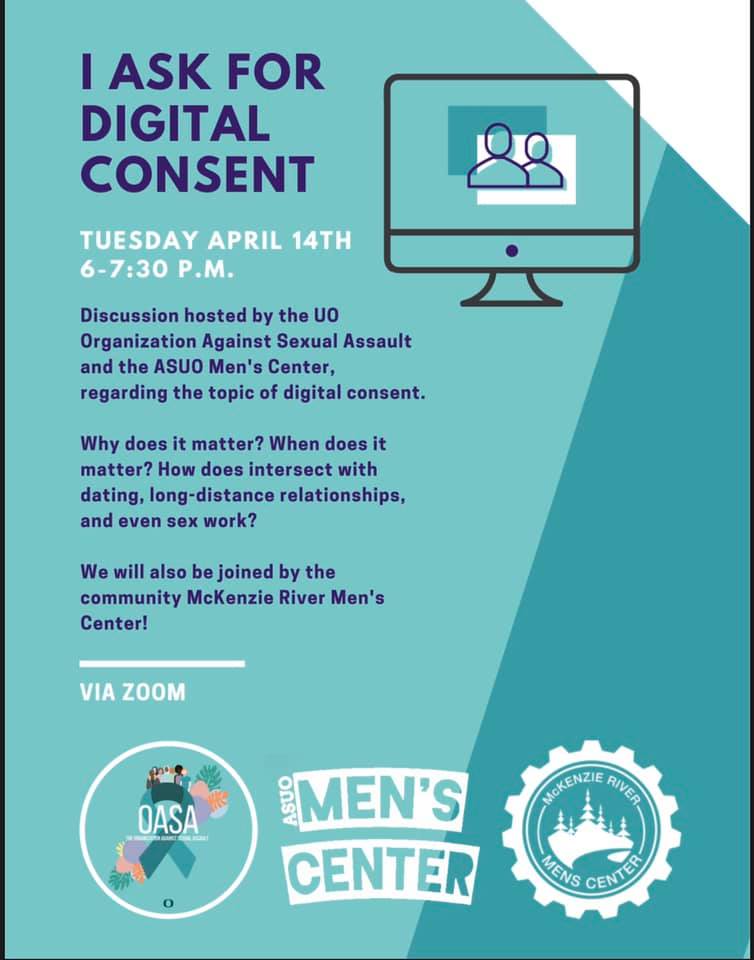
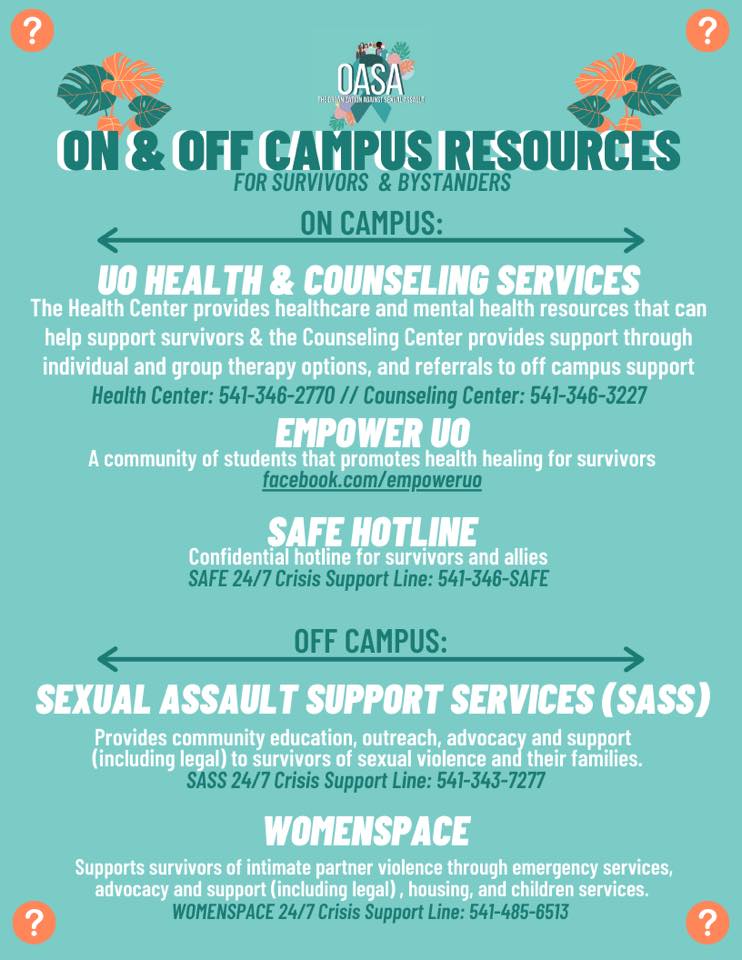
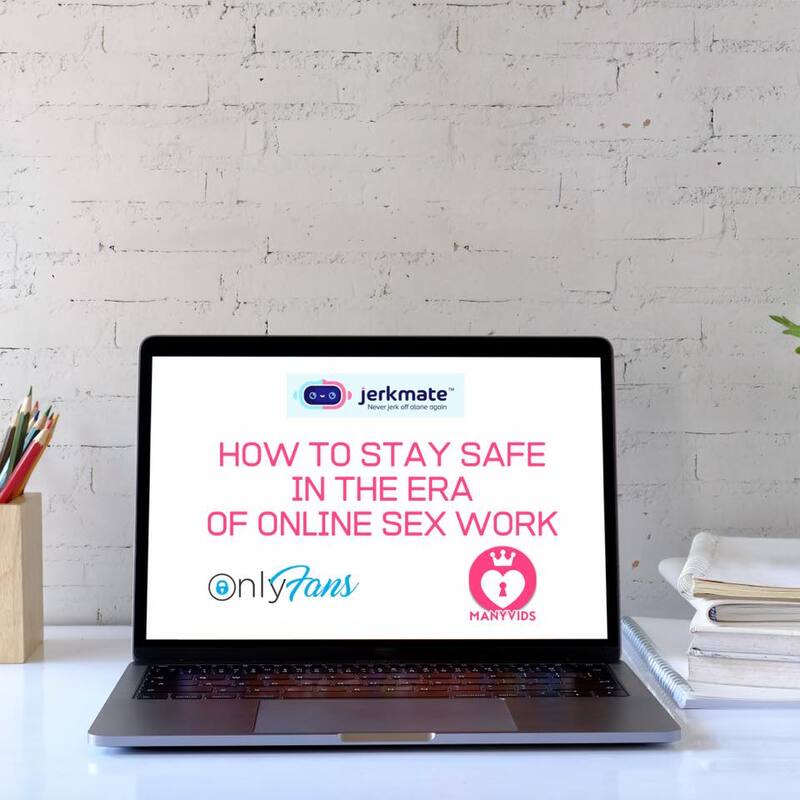
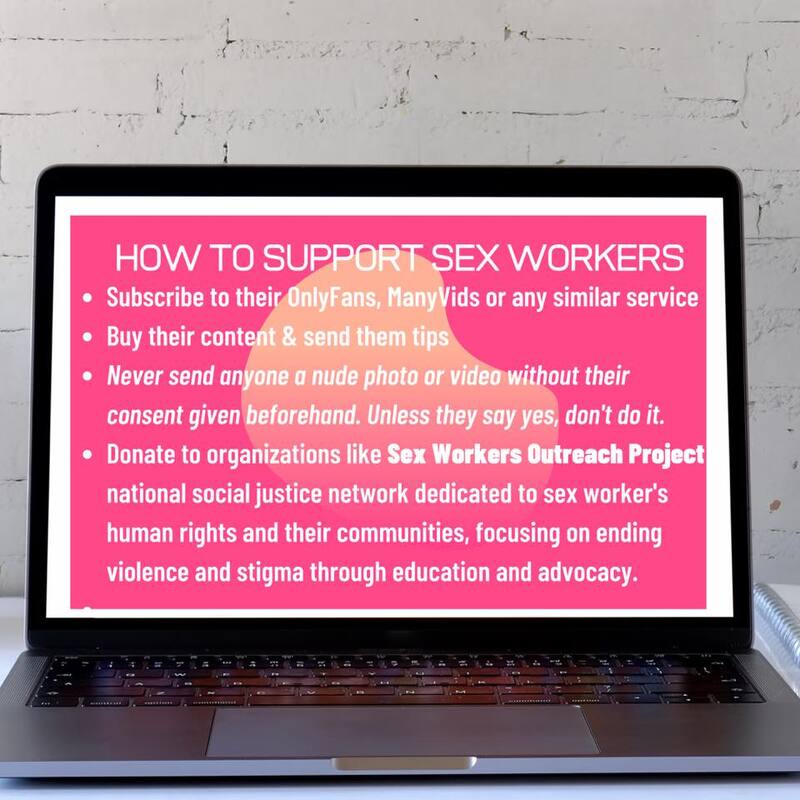
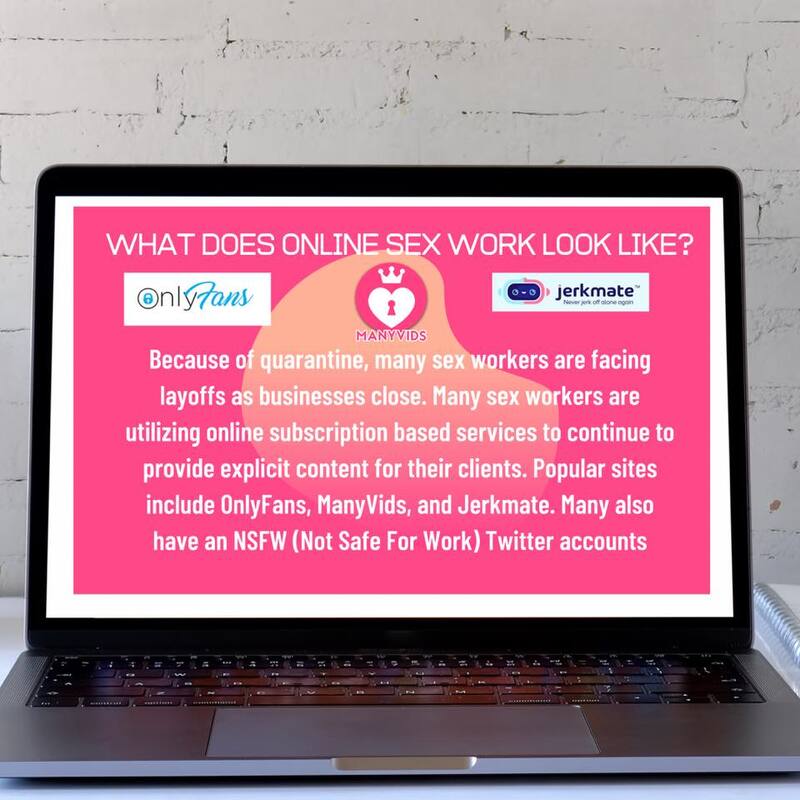

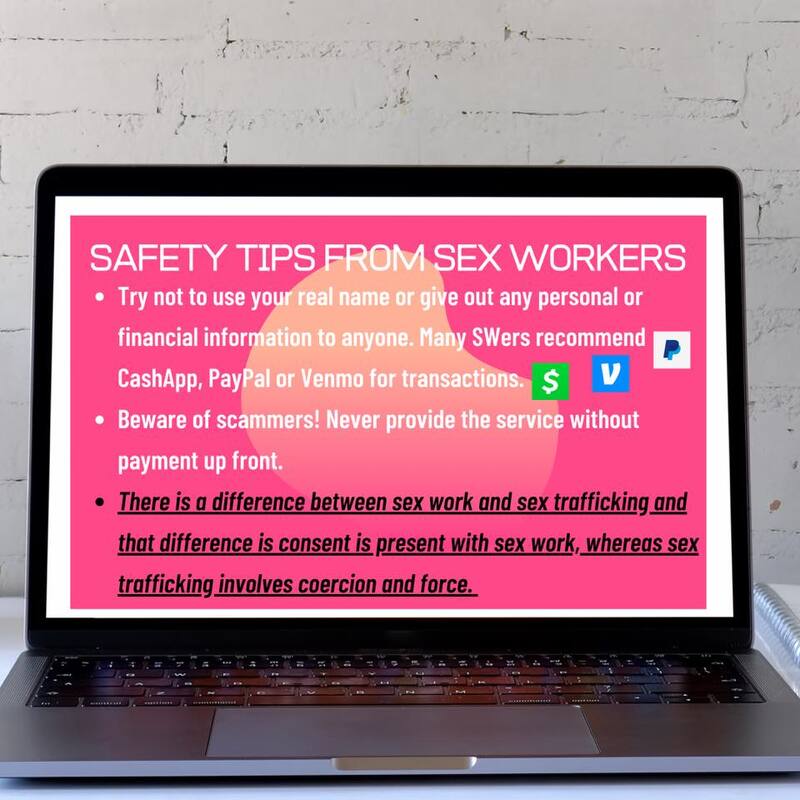
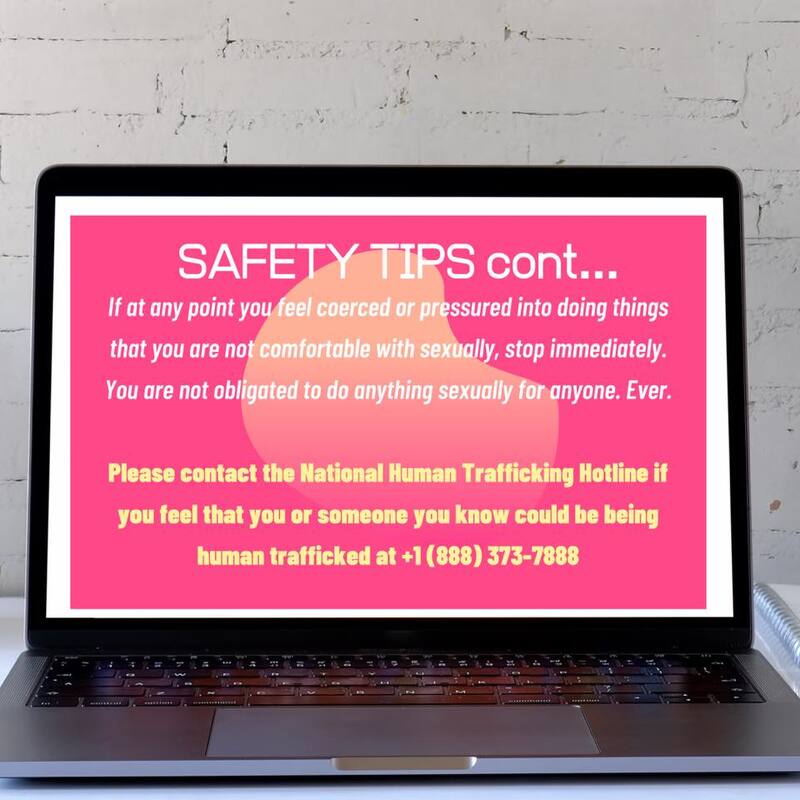
 RSS Feed
RSS Feed
